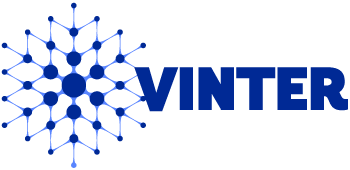The Importance of Developing an AI-Based Bias-Free Recruitment Platform
• First Impression Bias
Interviewers often form initial impressions of candidates within the first few minutes of meeting them. This first impression can color subsequent evaluations, leading to bias in favor of candidates who make a positive initial impact, regardless of their actual qualifications or performance during the interview.
• Similarity Bias
Interviewers may be more comfortable with candidates who share their background, interests or experiences. This can result in overlooked candidates with different skills.
• Stereotyping
Interviewers may make assumptions about a candidate based on demographic characteristics such as gender, race, age, or nationality, rather than focusing on their qualifications and abilities. This can result in unfair treatment and missed opportunities to recognize the unique strengths and potential of each candidate.
• Halo/Horn Effect
Interviewers may allow a single positive (halo) or negative (horn) trait of a candidate to disproportionately influence their overall evaluation. For example, a candidate who presents well on one aspect of the interview may receive inflated ratings across the board, while a candidate who performs poorly on one aspect may be unfairly judged for the entire interview.
The integration of artificial intelligence (AI) into recruitment processes marks a significant shift in the industry’s landscape. With this in mind, recruitment platforms leveraging AI-powered functionalities such as video analytics and candidate skill assessment present compelling opportunities for enhancing the efficiency of the hiring process. While these platforms offer undeniable benefits, it is essential to consider how we can ensure that they operate ethically and eliminate bias from the recruitment process.
With Vinter, the integration of AI into HR has ushered in an era of innovation, efficiency, and qualification-based decision-making, but also ethical challenges such as bias, fairness, and data privacy. While the ethical use of AI in HR is carefully considered, fairness, avoidance of bias and respect for employees’ privacy are always prioritized. Transparency and fairness are essential in the AI modules developed for Vinter to make fair evaluations regarding recruitment. The bias-resetting measures created by Vinter, which we convey throughout this statement, are key to building trust between employees and employers, which is vital to the successful application of AI in HR.
Strategies for Reducing Bias
In the pursuit of developing a more ethical and unbiased AI system, several crucial steps are taken into account. These steps are essential for ensuring fairness, transparency, and effectiveness in automated decision-making processes. Vinter as a leading provider of AI-driven recruitment solutions, prioritises the integration of these steps into its platform development with the aim of upholding the highest standards of ethical conduct and mitigating potential biases in the hiring process.
• Validated Dataset for Data Diversity:
Vinter recognizes the critical importance of diverse and unbiased data for creating a fair AI system. To achieve this, Vinter meticulously validates its datasets, ensuring that they accurately represent a wide range of backgrounds, experiences, and qualifications. By rigorously vetting the data used in its algorithms, Vinter aims to mitigate bias and promote inclusivity in the recruitment process. This commitment to validated datasets strengthens the foundation of Vinter’s AI platform, enabling it to make more informed and equitable hiring decisions.
• Algorithmic Transparency and Explainability:
Vinter is committed to providing clear and comprehensible explanations for the decisions made by its AI models. This means that whenever Vinter’s algorithms make a recommendation or evaluation in the recruitment process, they are accompanied by detailed explanations of the underlying reasoning and factors considered. By demystifying the decision-making process, Vinter empowers both recruiters and candidates to understand why certain assessments were made, fostering trust and accountability in the hiring process.
• Human and Academic Expertise in the Loop:
Vinter places significant emphasis on the indispensable role of human expertise in the recruitment process, working closely with qualified academics and industry experts. While AI technology offers valuable insights and efficiencies, Vinter understands that human judgement is essential for interpreting nuanced candidate qualities and making informed hiring decisions. By integrating academic expertise into its platform, Vinter ensures that its AI-generated recommendations are contextualized within the broader landscape of HR best practices and ethical considerations. Collaborating with academics allows Vinter to continuously refine its algorithms, incorporating the latest research findings and methodologies to enhance the accuracy and fairness of its assessments. This collaborative approach facilitates a mutually beneficial relationship between human intelligence and AI capabilities, ultimately leading to more effective and ethical recruitment outcomes for all stakeholders involved.
Accordingly, compliance with legal standards is mandatory for the ethical use of AI in HR, encompassing adherence to employment laws, data protection regulations, and anti-discrimination laws. AI solutions for Vinter are rapidly adapting to the legal requirements of different jurisdictions and countries, such as the GDPR in Europe. Vinter’s AI modules follow a proactive compliance strategy to swiftly adapt to constantly evolving legal frameworks. Consequently, Vinter is implementing a strategy of transparent dialogue with the marketplace, engaging with legal experts, regulatory bodies, academic advisors, and ethics committees to enhance trust and accountability.


